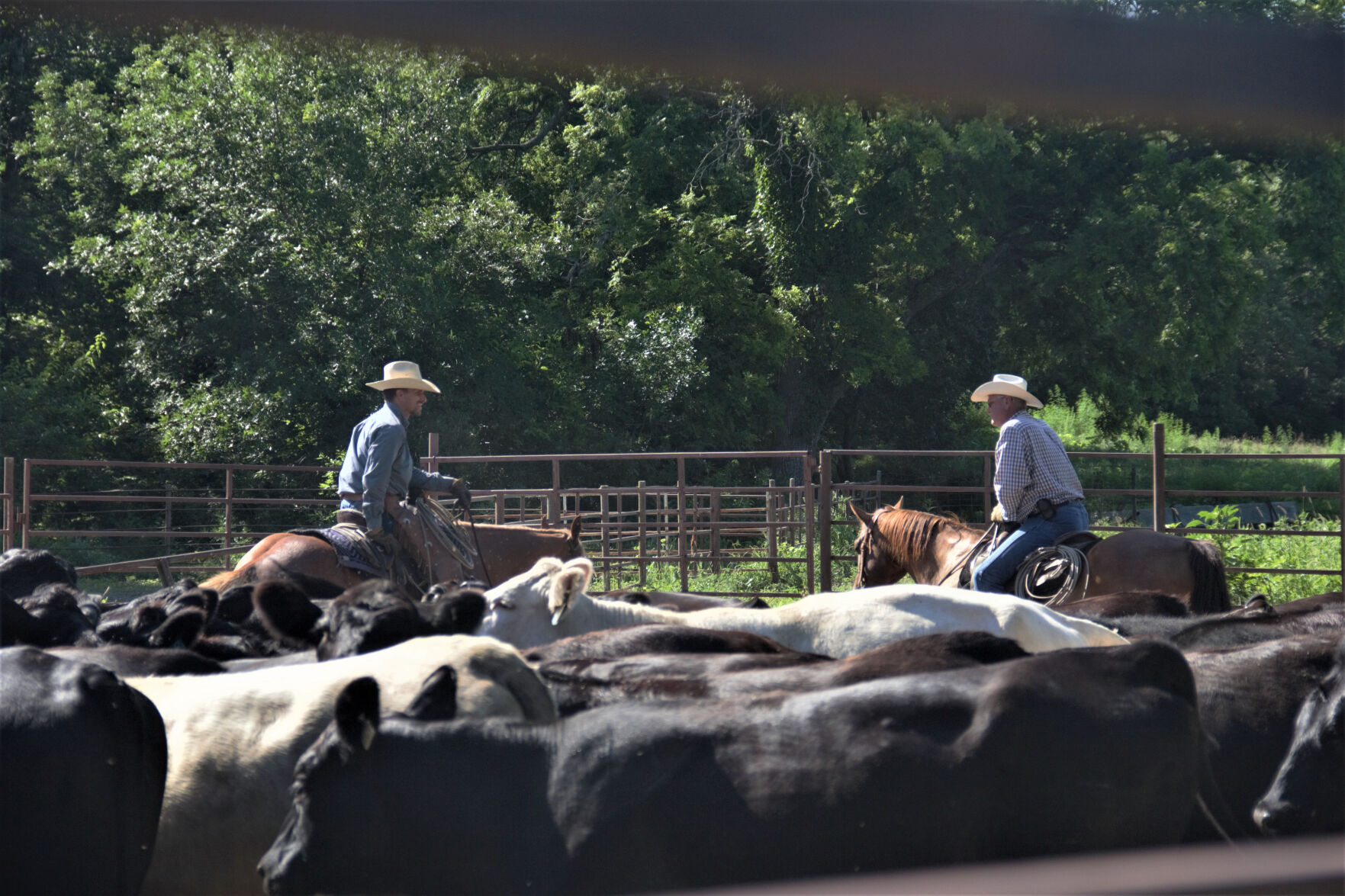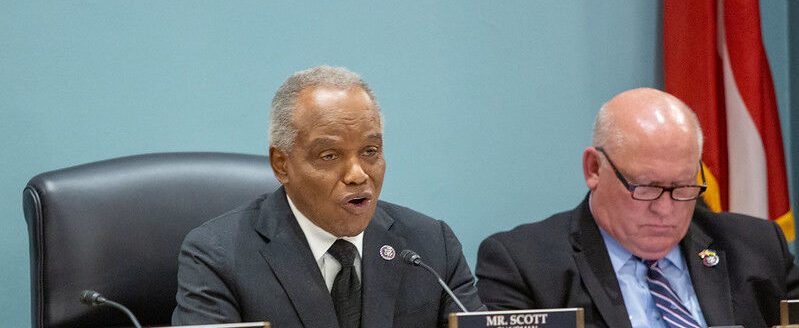Making a difference is easier said than done but it is a message Rusty Kemp takes to heart and is the impetus to the opening of a new beef plant in North Platte, Nebraska.
The McPherson County, Nebraska, cattle producer remembers a conversation he had on an overseas trade delegation trip to Japan and Vietnam. The trip, which was organized by Nebraska Gov. Pete Ricketts, occurred shortly after the August 2019 Tyson beef plant fire in Holcomb, Kansas, when the markets suffered a major decline in prices and the aftermath hit cattle producers hard. It led Kemp to have several conversations with the governor.
“The governor said, ‘Rusty if you can come up with a solution I will take a look at it and do what I can,’” Kemp said, as he remembered Ricketts telling him that finding a solution is the best way to solve a problem. Kemp remembered thinking to himself, “If we are going to solve this we have to do it ourselves.”
With that conversation in place, Kemp and a small group did their homework that ultimately led to Sustainable Beef LLC and a project that now has about 20 farm family operations committed to process beef in North Platte, Nebraska. The plant, in full operation, is estimated to process about 1,500 head of cattle a day. The business model commits to those owners who contract the cattle and Kemp said he does expect there will be some live buying too.
Besides a start-of-the-art plant producers have committed to block chain technology that Kemp believes will provide benefits to the consumers too.
2023 opening date
David Briggs, CEO of Sustainable Beef LLC, said the plant will employ about 875 workers when the plant is operational in 2023 and that excitement is felt by those who see the plant as a way to get Nebraska beef on the world stage as about a third of the meat is likely headed to international destinations, Briggs said.
Several factors reinforced the need for greater capacity in light of the Tyson plant fire in Holcomb, Kansas, in 2019, and then the COVID-19 pandemic in 2020 interrupted the beef supply line, both men said.
Kemp said a Rabobank study indicated that the industry could easily add more than 5,000 head of cattle capacity per day to restore balance in the system and help farmers and ranchers and the entire supply chain. With the projected 1,500 head a day going through Sustainable Beef he hoped it would be encouraging to others to pursue expansion.
North Platte, with its location on Interstate Highway 80 and in the heart of cattle country, became a natural fit particularly as the city leaders were eager to develop an 80-acre piece of tract that was available but had little previous value, Briggs said.
The Sustainable Beef plant will be located on the east fringe of the community with access to Interstate Highway 80 on land that’s only previous purpose was tied to the community’s sewer system.
The plant will be about 340,000 square feet and the cost will be over $200 million.
“The city of North Platte has been great to work with,” Kemp said in concurring with Briggs.
Part of the investment into construction is employing consultants who have helped develop larger processing plants and they understand the importance of being a good corporate neighbor. Briggs said all of the parties are aware of the importance of addressing odor concerns and finding ways to mitigate it.
Briggs said construction of large processing plants have been rare in the past couple of decades as most projects have been tied to additions or smaller operations.
“It will add more capacity to the industry,” he said with a different ownership model from the “big four” packers are either family owned or by shareholders, he said.
Most of the cattle he expects will be from within 200 miles of North Platte.
Great news for industry
Pete McClymont, executive vice president with Nebraska Cattlemen, Lincoln, said the project should provide a major injection of optimism for the cattle industry. The ownership group and community have embraced the opportunity and are on the same page.
McClymont says in his experiences is when the industry reduces capacity, and he has seen it in the Plains regions at Emporia, Kansas, and Plainview, Texas, not only are the communities hurt but also are farmers and ranchers.
“This is a specific site in a region where we needed expansion and it comes at time when also had good news when Tama, Iowa, announced it was adding capacity at National Beef,” McClymont said.
Total investment will be more than $100 million and will double the capacity of the plant to approximately 2,500 head per day, the company has stated. National Beef is also a major processor in Dodge City and Liberal, Kansas, and employs over 9,500 people.
“This is all good news for producers,” he said.
While there is always risk with new plants, whether new or expansion, oftentimes they do pay off and help producers and the industry.
McClymont remembers when U.S. Premium Beef began in the 1990s people in the industry watched it grow and develop and serve as a model on what producers can achieve.
The plant, with 875 jobs in a community of 25,500 people, should fit in well with North Platte’s industrial base with a school system that can accommodate families.
Sustainable Beef’s location means odor is less likely to drift over the community, McClymont said, which adds to the quality of life. He is also pleased with the latest technology for scrubbers and he said the plant will capture enough methane. A lagoon plant will capture enough methane that it is expected to provide 70% of the plant’s energy needs and that is good news not only for efficiency but also for stewardship.
Opportunity
With estimated processing of 400,000 head on an annual basis that is an important fact that is economic good news for the entire cattle industry, McClymont said.
About a third of the meat processed is expected to go overseas.
Kemp was able to see first hand the enthusiasm Japanese consumers have about consuming high quality beef and identify that with what Nebraska means. In addition, that means the remainder will be marketed as High Choice or Prime beef for consumers who value the taste and quality of Nebraska beef.
“Nebraska’s name resonates with high quality beef, just like Kansas has wheat and California has wine, Sustainable Beef will be able to capture a part of the beef market that has high demand,” McClymont said.
Kemp believes the Sustainable Beef’s plant, when fully operated, has the potential help improve the corn basis and feeder cattle basis in the region.
Glynn Tonsor, a professor in the department of agriculture economics at Kansas State University, said he was not surprised about the news of the development of Sustinable Beef as there has been a quite a bit of industry chatter about the need to add processing capacity.
“The largest facilities today operate closer to 6,000 per head, per day per industry sources,” Tonsor said. “Accordingly a new plant at 1,500 head would be smaller than the larger facilities yet still larger than most existing and recently announced plants.”
The prices received by participants throughout the supply chain are dictated by many factors, he said. The derived demand for fed cattle is in part driven by total packing capacity in the industry.
There are a host of challenges and opportunities with any new venture, he said. Some of the opportunities associated with a new facility include the prospect of incorporating cutting edge, modern technology that is not always available in older plants, but quickly adds it is always hard to speculate when trying to compare other facilities because capacity is always an important consideration.
Nebraska is a big cattle state and does have a ripple effect for producers throughout the High Plains, he said, and is likely to have an effect on not just the state hosting the facility.
“The U.S beef-cattle industry is truly global in nature,” Tonsor said. “Similarly, the feedlot-processing interface is not confined to any one state as cattle often cross borders to be harvested; I would expect that to continue and any new plant in the High Plains to have an effect on not just the state hosting the facility.
Dave Bergmeier can be reached at 620-227-1822 or [email protected].




